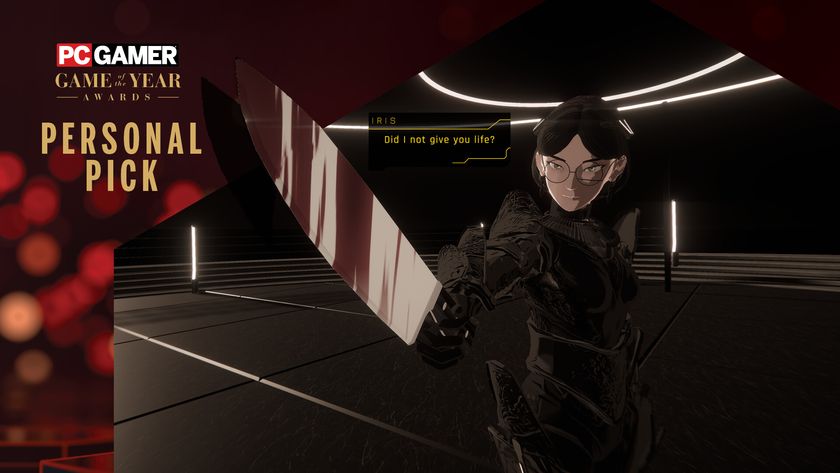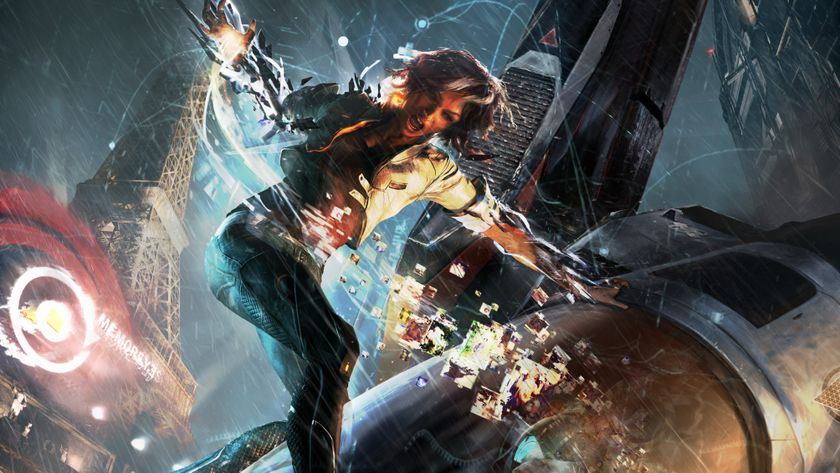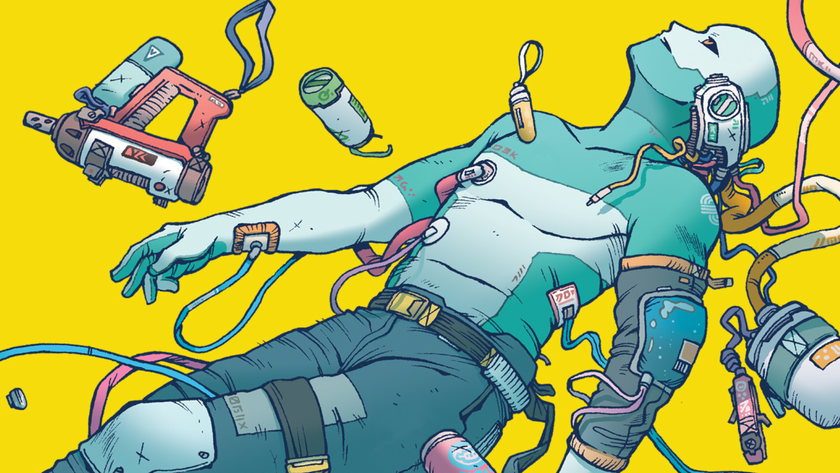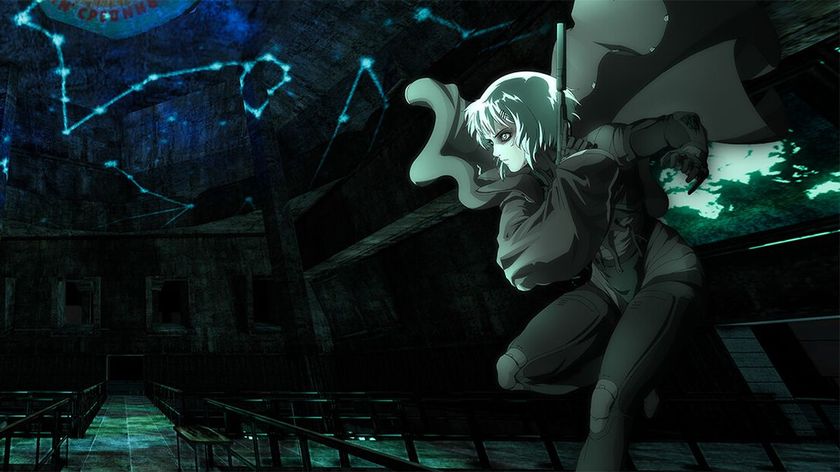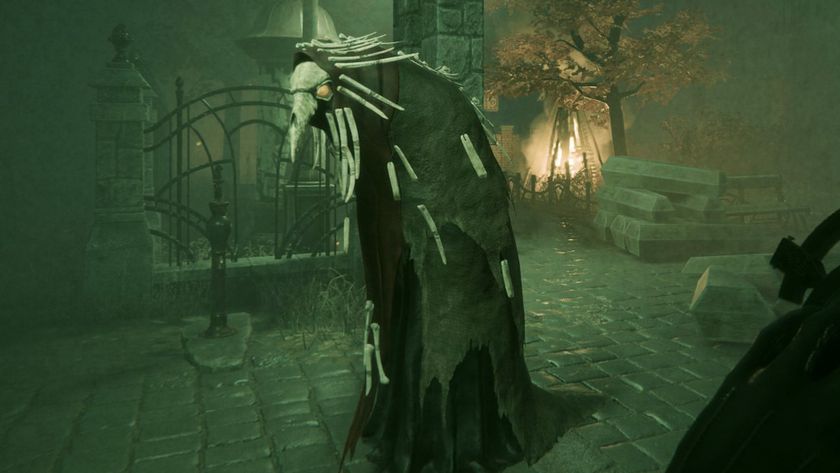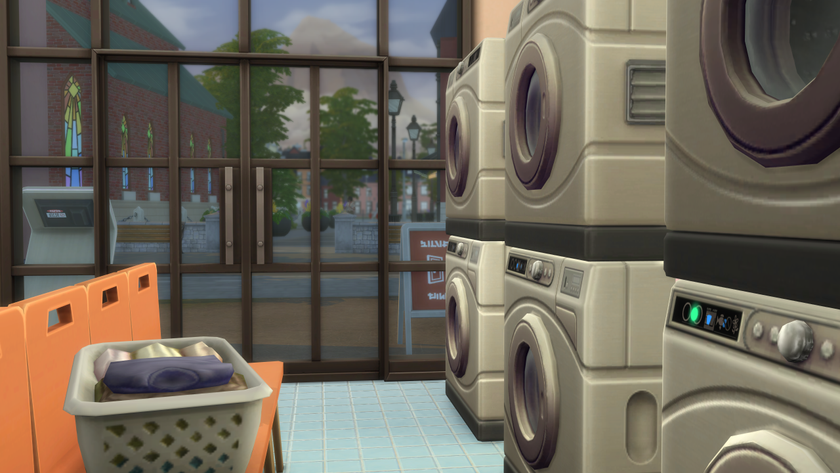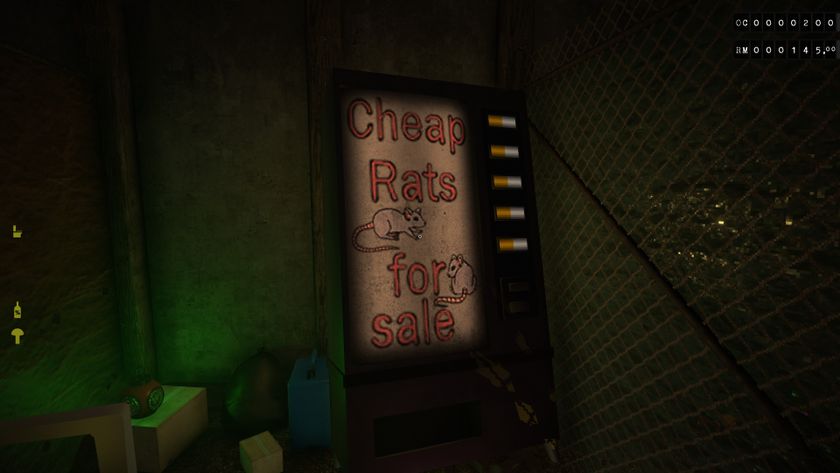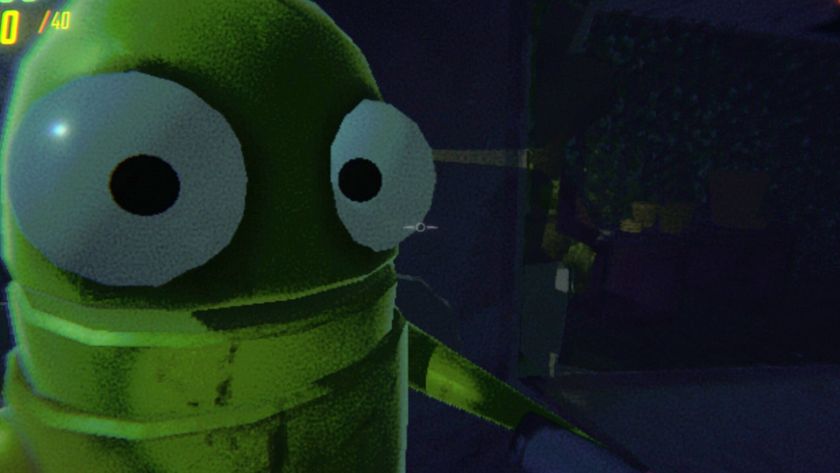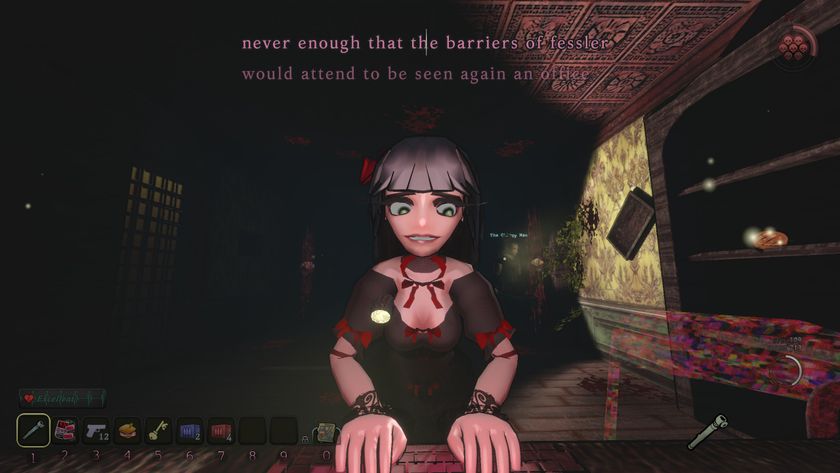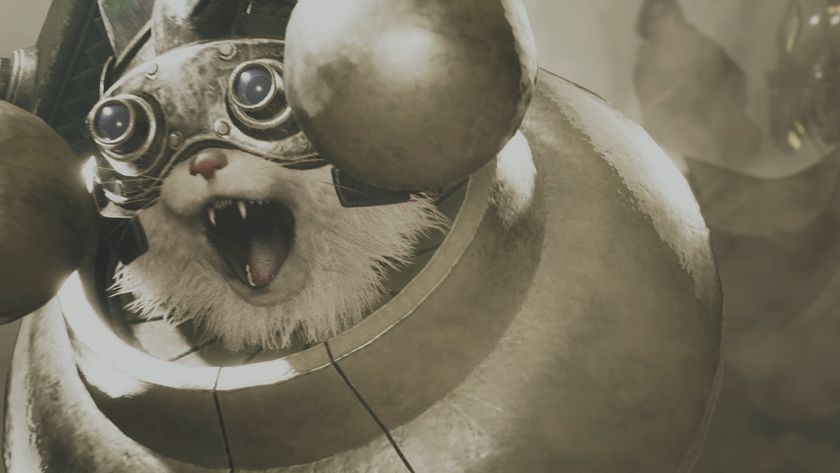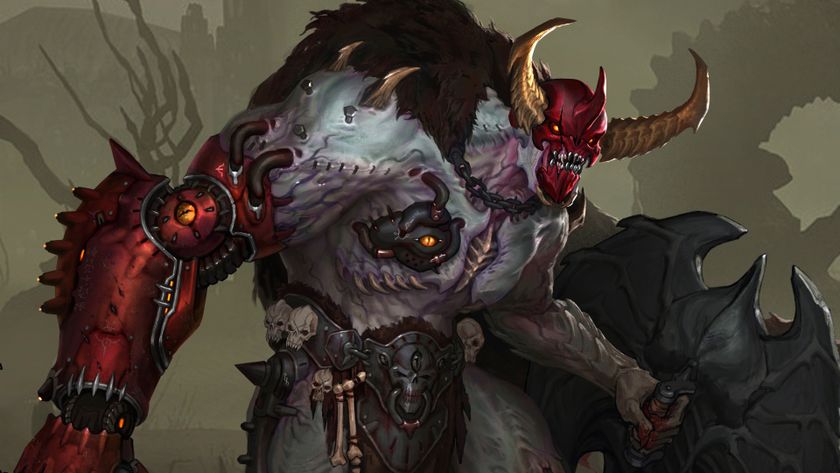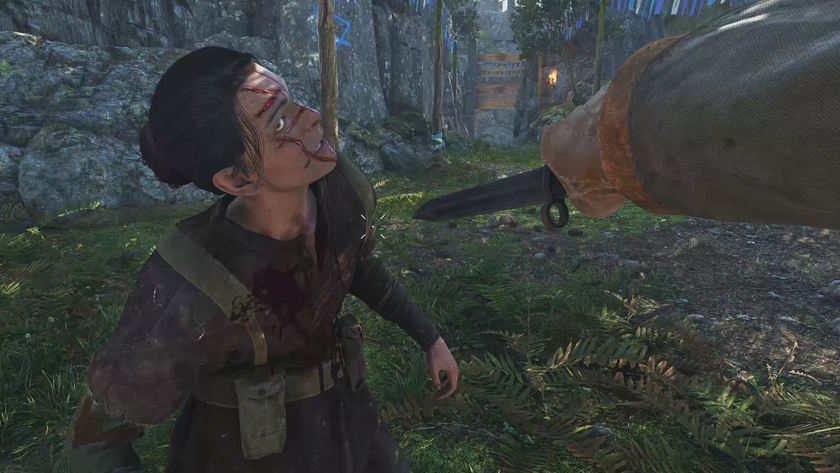Infocom classic A Mind Forever Voyaging was a game about predicting America's collapse
We're rerunning Richard Cobbett's classic Crapshoot column, in which he rolled the dice and took a chance on obscure games—both good and bad.

From 2010 to 2014 Richard Cobbett wrote Crapshoot, a column about rolling the dice to bring random games back into the light. This week, a text adventure that was less about puzzles than about witnessing the downfall of America.
Imagine waking up one day to find that you've never actually been awake at all. Your entire life has been a simulation—the focus of a program so complicated it can predict the future with near pin-point accuracy simply by extrapolating. You are not Perry Simm, American everyman. You are PRISM, and your quiet little virtual life is all that stands between the world and complete disaster.
A Mind Forever Voyaging is one of the best text adventures ever. Pity it also had some of the worst box art.
Infocom made cool games, and more than that, games that really played with the text adventure format. Nord and Bert Couldn't Make Head Nor Tail of It, for instance, was all about wordplay. Suspended took physical control away from the player, with the goal being to use multiple robots with limited senses to solve puzzles. A Mind Forever Voyaging, though, really took things to a new level.
This is one of the weeks where there's not so many funny things to say about the game as there are reasons to remember it for the phenomenally clever game it was. For starters, there are essentially two character modes. As Perry Simm, you wander around like a regular adventure character. When not in the simulation, you also play PRISM—a computer with very little control, and certainly no way to GO NORTH. This later becomes important when you find yourself under siege and have to figure out a way of defending yourself without handy things like arms. Literally, now I think about it.

The bulk of the game is spent in a simulation of an American town, Rockvil, starting in 2031. There are no real puzzles to complete here. Instead, your role is to observe the effects of a senator's plan to revitalise America—the "Plan For Renewed National Purpose". So, evil. Obviously. Goals include things like having a meal in a restaurant, visiting a cinema, and recording events for your creator, Dr. Perelman, and other policy advisors to look at to confirm all will be hunky-dory.
In the present, America is on the slide. Nukes, overstimulating 'joybooths' (totally not ripped from Sleeper) and a falling economy mean that things are pretty crappy. PRISM, however, is able to factor in the Plan and step a decade forward to when things are much better. There are issues, but people are happy and optimistic and there's no arguing that the Plan has helped drag the country up by its bootstraps. Perry meets his wife and child, and they're doing well. The government has enough food for everyone. With the reports in hand, everyone nods and agrees to implement The Plan.
The biggest gaming news, reviews and hardware deals
Keep up to date with the most important stories and the best deals, as picked by the PC Gamer team.
What can possibly go wrong?
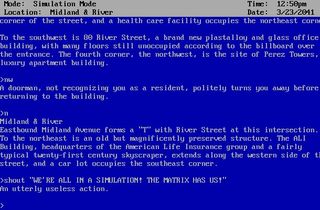
Beep beep. Beep beep.
That's the sound of the simulation gathering enough data to step forward another 10 years. Now, the cracks have spread. The world is increasingly polluted. The optimism is gone. A police state is emerging, and a cult establishing power among the disenfranchised people.
Beep beep. Beep beep.
Another 10 years. Public executions on television. Social castes. A brutal police state. Perry's son is sucked into the cult, called the Church Of God's Word. Water has become effectively undrinkable, and there's not a can of Brawndo to be found anywhere.
Beep beep. Beep beep.
Sorry, that was the Road Runner.
Beep beep. Beep beep.
A broken world, under the heel of the Church Of God's Word. Slavery. Animal torture as a hobby. Swift death. Perry's son returns, totally twisted by his new life, as Perry dies multiple times in increasingly awful ways and returns to record more evidence that the Plan will lead to the collapse of civilisation.
Beep beep.
And then no more beeps. Everything that matters is gone.
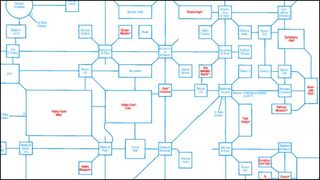
To be fair, the actual politics behind all of this are incredibly awkward at times, and exist largely to make a point. The Plan is firmly a conservative creation, whereas the good guy here, PRISM's creator, is on the record as being liberal. Likewise, factoring in a totalitarian take-over by a cult that won't be relevant for another couple of decades is the kind of thing that would get a "Bullshit!" from Foundation's Hari Seldon, unless he was busily establishing it somewhere just in case.
You don't have to agree with the speed or nature of how reality tumbles though, because the damage is kept much more personal. PRISM is a sentient computer rather than an impassive observer, and the collapse of civilisation is seen not as a wide-scale thing like in Deus Ex, but via the increasing degradation of his specific life and the small town he calls home. There's a real sense of impending doom every time a new time period opens up, because you know it's going to be even worse—from a quiet small town with promise to a weed-and-rat-infested dystopia full of crazy tribals whose don't even shout a warning before grabbing Perry and burning him alive for the hell of it.
Most importantly, while it ends up going to crazy-town for the last couple of simulations—up to and including zoos openly having torture sessions—most of the details are established early. In an early simulation for instance, you can visit the courthouse and see that the death penalty is now being applied to attempted rapists, setting the scene for its widespread use later on, if not necessarily justifying stuff like awards for executioners and similar wilfully dystopic nonsense. (Yeah. It gets kinda goofy.)

PRISM's family does a good job establishing an emotional core, as well as showing off elements like the way Perry and his wife Jill have a son whose sleeping area is cut out of the living room due to a lack of space, or that Jill's art changes to be much more depressing as the world goes to hell. Again, it's not overnight. An early timeframe features the two quite happy, with Jill painting and welcoming Perry back home with a kiss. Then, out of nowhere, half a dozen Border Security Force officers storm in with rifles, leaving Jill in tears, with just a nod towards civility: "Sorry for the inconvenience. We're only doing it for your own protection."
Not too far in the future, it happens again, this time with no civility. And it goes like this...
Jill is sitting on the couch, staring morosely out the window. Time passes. With a roar of tromping feet, six or eight heavily armed Church police storm into the apartment. You see a look of horror come over Jill, as she covers her mouth with the back of her hand as though stifling some silent scream. You follow her gaze and - a shock of recognition - sauntering in behind the police...
The ten years since you last saw him have left scant change on the face of your son. "Mitchell!" you yell, and take a step toward him, but a blow from one of the cops sends your frail, old body flying against the wall.
"She is the one." The voice is Mitchell's, but the tone is cold, sending shivers through you. He raises a fur-clad arm, pointing at his mother without a hint of emotion. "She spake against the Church; she tried to poison the mind of a child too young to know the Truth. The thugs grab Jill, who reaches towards Mitchell, tears of terror streaming down her face. Totally unresponsive, he turns and walks calmly out of the apartment.
As Jill is dragged, screaming and crying, through the front door, you try to follow, but a cop pummels you in the stomach with his club. You fall to the floor, retching, as the apartment door slams closed, shutting you off forever from the son you cannot understand and the wife you will never see again.
It's admittedly a little on-the-nose when read like this, but AMFV makes it work. Even factoring in that the people involved are a simulated family, and the game doesn't even spend much time with them, it's easy to empathise with the fact that in this situation, Perry does not care that it's fake. It's a level of character building other games in the mid-80s did not do.

The endgame comes when you convince Perelman the Plan will be a disaster, and he flies to Washington to have it stopped. And fails. The senator responsible is far too powerful and represents too many vested interests for that. Not content with that though, he sends a team of electrician hitmen to have your plug pulled before you can cause any trouble, stopped only by the fact that not having arms doesn't mean not being able to shut off the ventilators in key parts of your building. The fact that you've been recording the disaster in all of these timeframes also leads to an opportunity to bypass politics and broadcast them to the world, exposing the Plan and forcing Ryder to back down.
What follows is one of the more memorable epilogue sequences in the genre. As a reward for that, and for subsequently helping field-test alternate plans that don't turn the world into a perpetual Fallout 3 cosplay event, PRISM is essentially granted his simulated freedom—to be put back into his fake world, improved by the New Plan he helped create, and left to live out his life rather than being a government tool. What makes it really work though is that it's interactive; a mini-adventure through Perry's dreams as well as his nightmares. We've seen evidence of him being a writer in the different timeframes, but now he's a noted author and poet. Far from becoming a deranged cultist, his son is happy and prosperous. And for Perry, there's one final destination to visit that nobody has ever seen before—him and Jill joining a colony ship that, virtually at least, is heading out into the universe.
Unfortunately it's dark in space, and they're immediately eaten by a grue.
No, not really. But that would have been a hell of a twist ending.

While A Mind Forever Voyaging didn't really go onto inspire many other games directly, though its premise remains a genius one, it certainly made an impact on players. Former PC Gamer editor turned Hollywood screenwriter Gary Whitta tried to get it turned into a movie back in 2002. Its use of text to breathe detail into emotional moments would also be followed by other games, not least Planescape: Torment. It's also a technique used by things called 'books'. You may have heard of them.
It's a little fiddly to play now, thanks to an annoying map that's entirely too fond of diagonal movement, and way too much copy protection (a different code for every jump into simulation mode), but it's worth a play if you can stomach it. I wasn't able to find any transcripts of the actual game, though surprisingly enough there is a Let's Play on YouTube. It may not be the prettiest, but it's as good a way as any to get a feel for things—and a few of the frustrations, like trying to work out how many deaths you need to go through before Perelman will admit the future is a festering shithole. The focus being more on exploration than puzzle-solving though, it's still not quite the experience of actually poking around.
